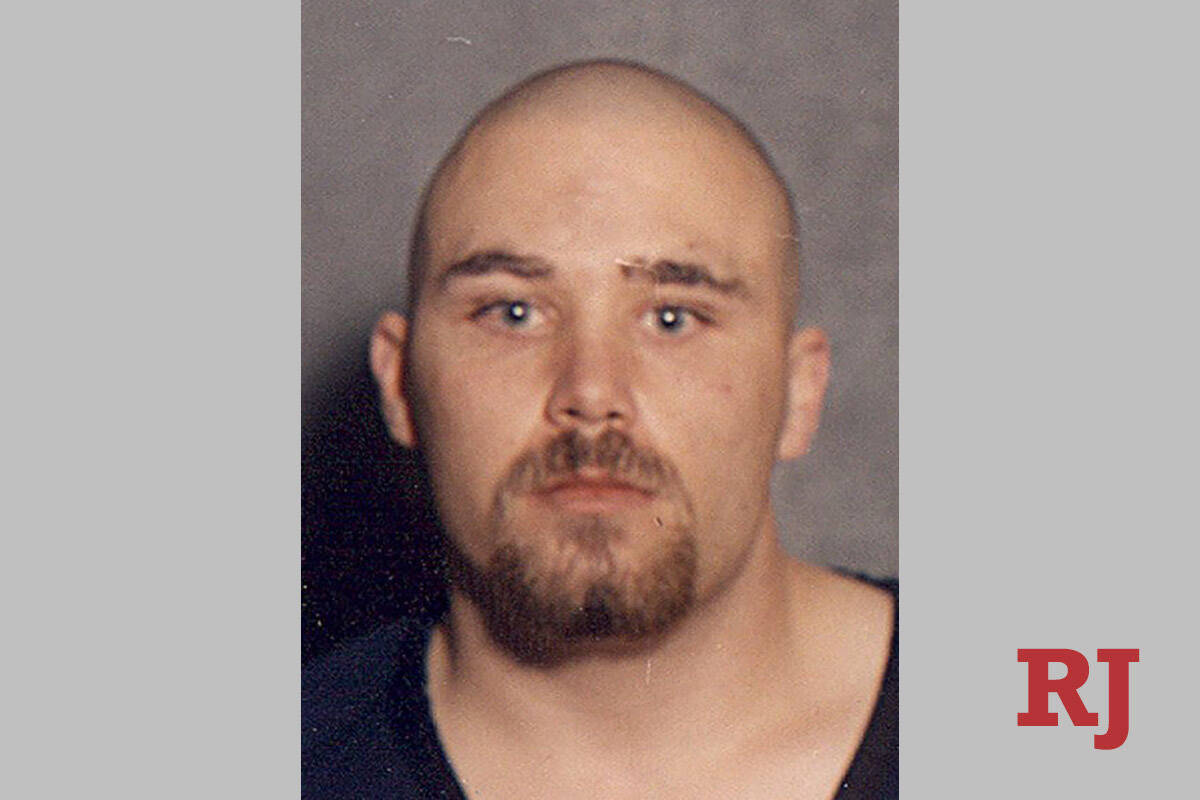Supreme Court yet to rule on Zane Floyd’s bids to stop execution
It’s been more than two years since the Clark County district attorney’s office announced it would seek a warrant of execution for death row inmate Zane Floyd, who was convicted of killing four people inside a Las Vegas grocery store in 1999.
Although prosecutors said Floyd had exhausted his federal appeals, the process has continued with efforts from federal public defenders to stay the execution or commute his sentence.
The Nevada Supreme Court has yet to rule on two of Floyd’s appeals — one where lawyers presented oral arguments in April, and another where the final written briefs have been submitted for over a year.
Last month marked 24 years since Floyd walked into an Albertsons on West Sahara Avenue and opened fire with a 12-gauge shotgun, killing four employees — Lucy Tarantino, 60, Thomas Darnell, 40, Chuck Leos, 40, and Dennis “Troy” Sargent, 31 — and injuring a fifth man. He was also convicted of repeatedly raping a woman before the massacre.
If Floyd is ever put to death, it will mark the first time since 1996 that Nevada has executed a prisoner who did not “volunteer” by waiving appeals in his case.
Since the Nevada Legislature reinstated the death penalty in 1977, all but one of the 12 men executed have been volunteers, according to data from the Death Penalty Information Center.
Last execution
The last man executed in Nevada was Daryl Mack, who was put to death by lethal injection on April 26, 2006, for killings in 1988 and 1994.
Under Nevada law, a death-row inmate is entitled to one direct appeal of their conviction, unless defense attorneys can show that subsequent appeals show “valid justification” for why the claim hasn’t been raised in prior proceedings.
One of Floyd’s petitions in front of the Supreme Court marks the third time he has directly appealed the case, said Chief Deputy District Attorney Alexander Chen, who oversees the appellate division of the district attorney’s office.
Chen said he believes the higher court won’t grant Floyd’s appeal, and the case has the potential to continue past any Supreme Court decision.
“Lets’s just assume the Supreme Court denies their third petition,” Chen said. “What’s to stop them from immediately going back in front of the District Court and filing a fourth petition?”
Chen said that prosecutors have been willing to wait and see how the appeals process plays out before pushing more aggressively for a death warrant, but “at some point it needs to be over.”
‘Imperative they get it right’
Scott Coffee, a public defender who has worked on death penalty cases for more than 20 years, said that imposing time limits on death penalty appeals would violate prisoners’ rights to due process.
“The court system, it moves slow because it’s imperative they get it right,” Coffee said.
Floyd’s federal public defenders did not respond to requests for comment.
In the appeal in front of the Supreme Court, Floyd’s attorneys argued that a District Court judge erred in multiple rulings, including denying Floyd’s claim that he cannot be executed due to fetal alcohol spectrum disorder, and denying Floyd’s claim that his due process rights were violated when the state prevented him from seeking clemency from the Nevada Pardons Board.
His attorneys have argued that Floyd was violently abused as a child and suffered brain damage from fetal alcohol spectrum disorder and post-traumatic stress disorder from his time in the Marines.
Unclear when court will issue decision
Although all briefings in the case have been completed since April 2022, it is unclear when the Supreme Court will issue a decision.
The Supreme Court heard oral arguments in April in a separate case brought by Floyd’s lawyers, challenging the Department of Corrections’ methods to carry out executions.
Federal public defenders argued that the Legislature improperly delegated lawmaking powers by giving the Department of Corrections’ director the power to “unilaterally determine” the execution protocol.
Even if Floyd’s appeals are denied, an execution could further stall over the combination of drugs proposed by the state.
In federal court, attorneys challenged the execution protocol after state officials planned for a lethal cocktail that had not been used together to carry out an execution.
Experts called by Floyd’s attorneys to testify in federal court have said the drug combination could cause extreme suffering while Floyd is paralyzed and suffocating.
Although court records show the federal case remains active, U.S. District Judge Richard Boulware has said the issue could be considered moot since some of the drugs the state intended to use have expired.
At least 32 inmates have been housed on death row for longer than Floyd, according to data from the Department of Corrections.
Edward Wilson, 64, the state’s longest-serving death row prisoner, was sentenced to die in 1979 for killing a Reno police officer that year.
Coffee said that Floyd’s case stands out because of the publicity surrounding his crimes, not because of the length of time he’s been imprisoned.
“He’s got more notoriety, but notoriety isn’t an excuse for expedience,” he said.
Contact Katelyn Newberg at knewberg@reviewjournal.com or 702-383-0240. Follow @k_newberg on Twitter.


















